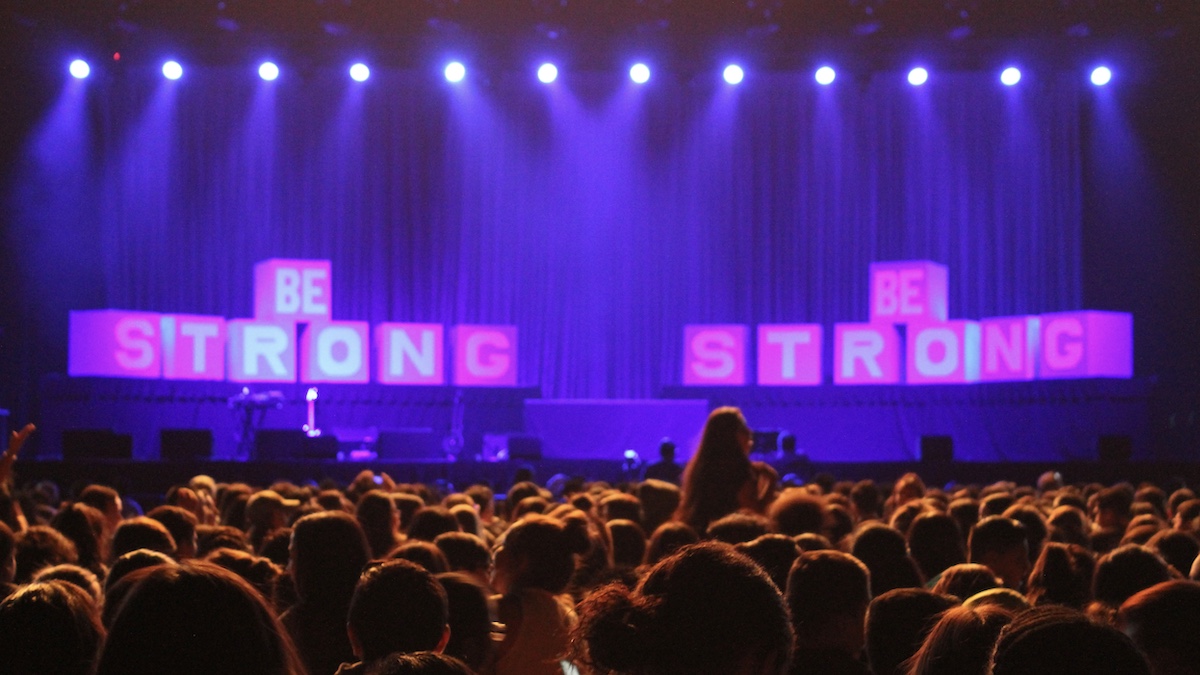By Amber Murphy
Feeling lost in life is one of the worst feelings in the world. It’s something that a person will likely experience at some point in their lives. Feeling lost can be caused by several factors, such as a lack of purpose, fulfillment, or direction. Right now, it may seem like life has no meaning. When this happens, though, remember that you need to go easy on yourself instead of blaming yourself for feeling lost. Fortunately, there are still ways you can cope with this challenging situation. In this article, we’ll be sharing some techniques to help you cope with feeling lost.
What does it mean to feel lost?
When you feel lost, you don’t know what to do, how to feel, and which direction to lead yourself. When feeling lost, we tend to question every aspect of our lives, spiraling us out of control. People who feel lost often take one small setback or problem and extend it to other areas. This process is known as catastrophizing. That’s why what starts as a minor problem grows big quickly.
You might begin to lack provision, direction, and purpose. You may even start second-guessing yourself and the things in which you’ve believed. This feeling eventually trickles down to countless areas, such as friendships, relationships, career paths, and personal growth.
Feeling overwhelmed with difficult situations can sometimes cause a sense of feeling lost. One of the most dangerous aspects of feeling lost is when you no longer recognize who you are, which affects your self-image and confidence. This feeling often creates a sense of detachment since you no longer identify with yourself. However, feeling lost is also sometimes necessary since we tend to run away from our painful emotions, complicated relationships, past trauma, and other challenging events. When you feel lost, it can raise an alarm bell that it’s time to pay attention to the truth you’re running away from and make necessary changes in your life.
How to cope with feeling lost
1. Accept that it’s okay to feel lost
No matter how difficult the feeling of being lost might seem, realize that it’s not a feeling that will last forever. All suffering in life is temporary. There’s no exception. The more you try to avoid this feeling, the more you likely won’t be able to cope with it. An inability to cope happens because we often tend to extrapolate it, understand it, and, thus, magnify it as a result. People who try to figure out what’s causing the issue instead of letting the feeling be often make the situation worse themselves. Overanalyzing a fleeting feeling often makes the feeling last longer. It’s essential to recognize that sometimes you’re going to feel negative emotions. Instead of dwelling on them, allow yourself to experience the sentiment since it isn’t lasting anyways.
There’s nothing wrong with feeling lost, no matter how difficult it is to sit with your feelings. It would help if you also realized that sometimes feeling lost is the key to making necessary changes in your life to becoming better. You can always use this feeling to your advantage and reflect on your life. Everyone feels lost at some point in their lives, but it’s up to you how you’re going to cope with that feeling.
2. Realize you have more control than you think
You have control over your emotions and thoughts – not the other way around. You create your current reality, and you shape your life. Nobody else but you is in charge of how your life turns out, which means you will always have the upper hand. If there’s something in your life you aren’t happy about, the realization that you can turn your life around anytime should be enough to counter the feeling of being lost.
You need to ensure that you’re not developing a victim mindset. While trauma, loss, or a significant setback can make you feel unsteady and drastically change your life. The change can still turn out to be positive. People have lost spouses, children, and even a sense of safety. And many have learned to take their loss and create a beautiful life from it. If a child or spouse dies suddenly and traumatically, you might consider starting an organization to help others in a similar situation cope or prevent it from happening again. If you’ve experienced a trauma, you can use the experience to rebuild yourself up in a new way. Some people choose to do good deeds every day to help put their life on a better path. Allow yourself to get out of your own way.
3. Focus on your strengths and capabilities
Avoid focusing on your imperfections and weaknesses. Everyone has flaws, and there’s absolutely nothing you can gain from obsessing about them. When you feel lost in life, the best thing you can do is focus on your best strengths. By shifting your perspective to the things you’re good at, you can gradually move forward. It’s far better to build up your strengths than worrying about weaknesses. Your best traits reflect the best parts of you. If you’re having negative thoughts, it will only bring you down. No matter what, your flaws are not a reflection of your capabilities.
And remember, your personality isn’t permanent. Think of how much you’ve changed since you were a child. You can swap out negative traits and replace them with positive characteristics anytime. Your brain is changeable. You can learn new skills. Pushing yourself in different ways is always possible. If feeling lost has made you reevaluate some aspects of the person you are today, remember you can decide who you want to be tomorrow.
4. Choose healthy habits
This point might sound a little cliche, but your habits determine the outcome of your life. If you’re having unhealthy habits, such as constantly browsing mindlessly through social media posts, then you need to reevaluate your habits. Your habits can contribute to feeling lost in life, especially when the majority of your habits are unhealthy ones. With habits like social media consumption, it’s not entirely bad, but when it’s causing you to compare your life with everyone else’s, that’s when it becomes unhealthy. Like anything, moderation is key.
You can develop good habits at any time. Starting today, you can begin to do that social media detox, practice good deeds in every interaction, choose a different way to respond to a partner or child or anything else. When we’re feeling lost, it’s normal for there to be an increase in negative behavior. Still, by swapping that with a positive, compassionate, and kind attitude, we can begin to find the meaning that guides us back on track.
5. Read on personal development
We often get stuck in our heads with an inner critic that makes us feel lost. While it’s normal to feel that way sometimes, you don’t want to become stuck in that mindset. When you read regularly, you learn new perspectives, skills, and solutions. The self-help genre is one of the biggest for a reason. Personal development books and articles can help you more than you realize, mainly when authors specialize in a specific topic. If you’re finding it difficult to cope with this feeling and not knowing what to do and where to go, now is the perfect time to read on personal development.
For instance, if you’re struggling to rewire your brain or with trauma, you might read books about how the brain works. Someone who is grieving a loss of a loved one might choose to read books about coping with grief or coping with depression. A person struggling with finding meaning in life might decide to read books about compassion, kindness, or philosophy. There’s a book for every need in life to help you transition from feeling lost to getting back on track.
6. Have a change of environment
Whether you realize this or not, it’s easy to dwell on negative emotions when you stay in one place for long periods. Emotions are fleeting. Still, by staying in one place, there’s a possibility to dwell in negativity and let your feelings consume you. Even when feeling lost, you might gain the inspiration you’re looking for by going outside and moving your body. Fresh air can do wonders for someone. Even something as simple as getting out of bed and taking a shower can create a slight improvement in your management of emotions.
If possible, consider going on a mini-vacation. You don’t need to jet-set on a plane to see a mental boost. Even going for a weekend getaway to cottage country, a popular tourist attraction, or a nice long hike in a forest can help you recharge your batteries. Life is meant to be lived out there in the world. So when you find you’re too in your head, get out into nature and explore. Take in all the sights, sounds, and smells that surround you.
7. Acknowledge who you are
Even when you feel lost, confused, and scared out of your mind, acknowledging who you are is the best thing you can do. Acknowledge this phase of your life, no matter how difficult it seems. When you affirm what you feel and everything that comes with it, it will be easier for you to move forward despite feeling lost. As long as you avoid dwelling in that loneliness, then you’ll be fine. Knowing who you are may also require you to look inward, which isn’t easy as it takes a certain level of self-awareness. You’re not a quitter or someone who gives up quickly. You’re able to learn new skills to help yourself out of this moment. Life hasn’t always been easy for you, but you’ve always managed to help yourself out of a tough time. This moment is no exception. You’re going to come out of this moment stronger than you went into it. It’s you. Of course, you can do it.
8. Feeling lost can help you learn
When you’re feeling lost, you can learn about the feeling more than you realize. We spend so much time with other people that we rarely take time for ourselves. When you’re feeling lost, it can show you that you need to pay more attention to what’s happening to spark a change in your life. As difficult as the feeling of being lost may seem, you need to learn from it and stop avoiding it. When you’re alone, you have no other choice but to face the truth and take the necessary action to make changes.
9. Take action
It’s time to take action. While feeling lost is something to come to terms with for this moment, you also need to set yourself up to move forward. You can’t deal with the feeling of being lost when you don’t do anything but dwell on it further. You will feel lost one way or another in your life, but what matters is what you choose to do about that feeling. If you feel lost because you’re not sure if you’ve taken the right career path, ask yourself the question of whether you’re actively doing something that brings you closer to the career you want? Stop making excuses and think about the fact that it’s time to face the truth behind why you’re feeling the way you do.
One way to take action for your next step is to practice meditation. By practicing meditation, you’ll learn how to focus on something other than the wandering thoughts that sometimes lead you astray. Meditation is the first step towards mindful living. And once you start living mindful, you’ll begin to notice some of the negative experiences slip away. You’ll start to live more presently instead of reliving the past a million times or fearing the future. In the present moment, people don’t feel lost, scared, or confused. They’re too busy living, loving, and helping.
Conclusion
In this article, we highlighted ways to help you cope with feeling lost. This emotion is hard to deal with, but sometimes it’s the push we need to pivot in a new direction in life. Using the tips above, you can start taking action to help you transition away from feeling lost. It’s crucial not to catastrophize your feelings as that will only make them worse. Remember, like everything in life, feeling lost is temporary. You won’t feel this way forever. You can practice meditation, compassion, and kindness to help you find meaning in your life and build the confidence to move a step forward.
This post originally appeared on Declutter the Mind.
For one touch access to trained crisis counselors and much more, download the free Be Strong App now.






